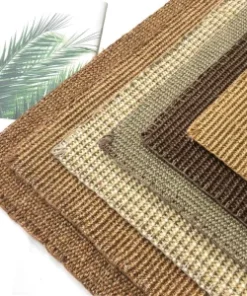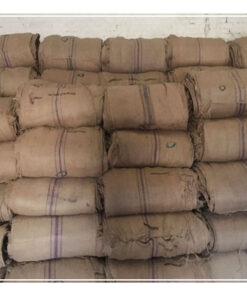What is sisal fiber
Sisal fiber is a natural fiber derived from the leaves of the sisal plant, scientifically known as Agave sisalana. This plant is native to Mexico but is now cultivated in various tropical and subtropical regions around the world.
Key Characteristics of Sisal Fiber
- Strength and Durability: Sisal fiber is known for its high tensile strength, making it very durable and resistant to degradation.
- Natural and Biodegradable: As a plant-based material, sisal fiber is biodegradable, making it an environmentally friendly option compared to synthetic fibers.
- Moisture Resistance: Sisal has low moisture absorption, which helps prevent mold and mildew, allowing it to be used in various environments.
Common Uses
- Rope and Twine: One of the most traditional uses of sisal fiber, it is commonly used to make strong ropes and twines for agricultural and industrial applications.
- Textiles: Sisal is used in the production of carpets, rugs, and various textiles, providing durability and a natural look.
- Crafts and Decorations: It is popular in crafting for items like baskets, mats, and decorative pieces.
- Composite Materials: Sisal fiber is increasingly used in the automotive and construction industries as a reinforcement material in composites.
- Agricultural Products: It can also be used in erosion control mats and as a biodegradable alternative for various agricultural applications.
Benefits
- Cost-Effective: Sisal fiber is generally less expensive than many other natural fibers, making it an economical choice for many uses.
- Sustainable: Its cultivation has a relatively low environmental impact, and the fiber itself is renewable and biodegradable.
- Low Maintenance: Products made from sisal are easy to maintain and often require minimal care.
At Global Sisal Fiber, we understand the importance of sustainability in agriculture. Our operations are deeply rooted in environmentally friendly practices that prioritize soil health, water conservation, and biodiversity. We collaborate closely with local farmers, providing them with training and resources to implement sustainable farming techniques that not only enhance their productivity but also promote ecological balance.
Global Sisal Fiber is a leading supplier of high-quality sisal fiber and agro products based in the heart of South Africa. With a commitment to sustainable practices and community development, we aim to provide businesses worldwide with top-notch sisal products while promoting agricultural innovation and environmental stewardship. This diversification not only enhances our market offering but also supports the efficient use of resources, minimizing waste.

Uncategorized
Uncategorized
Uncategorized
Uncategorized
Uncategorized
Uncategorized
Uncategorized
Uncategorized





















